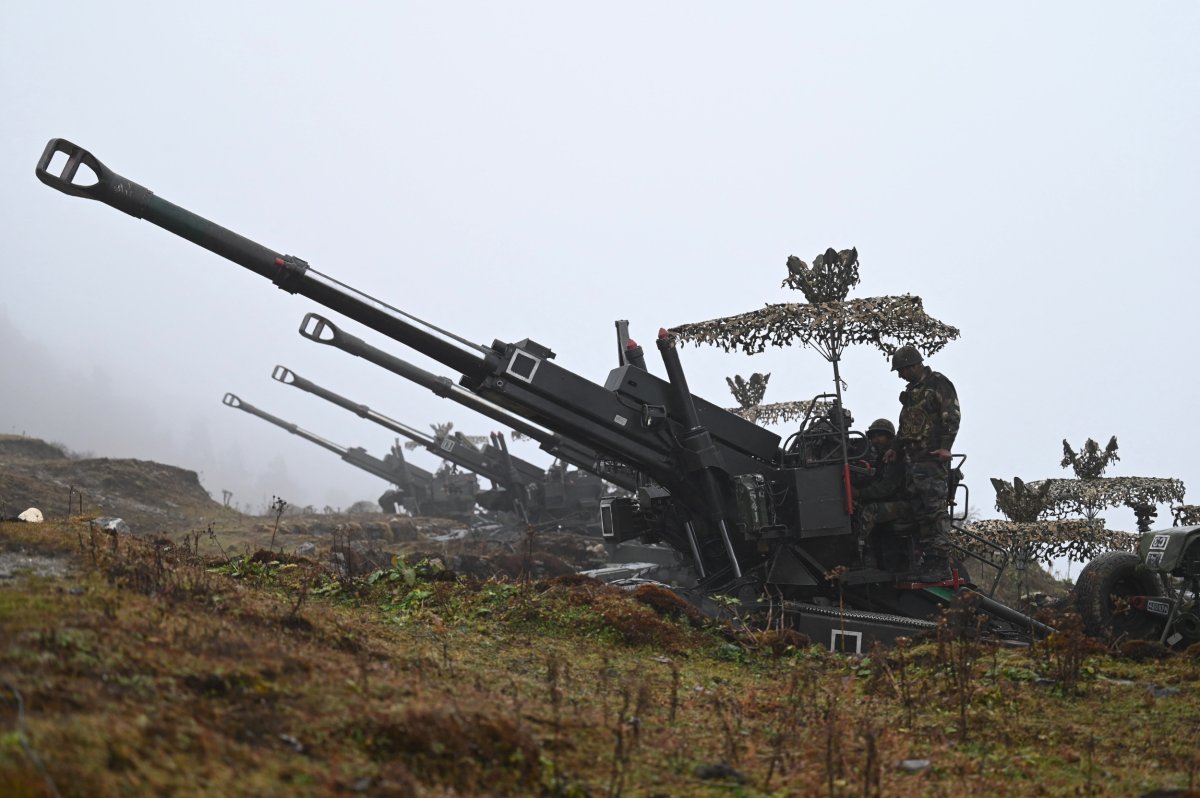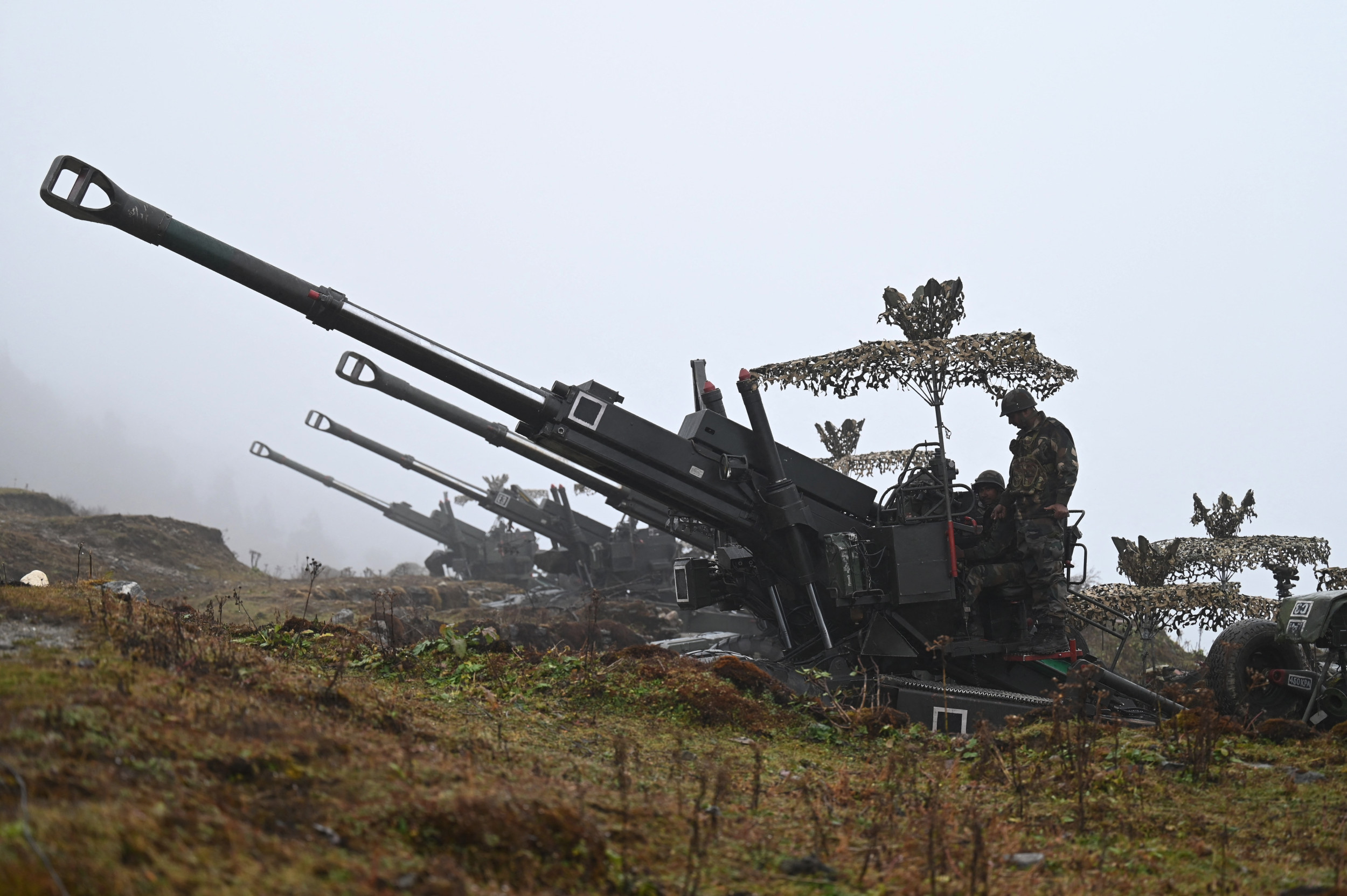China and India have recently struck a deal regarding patrols along their disputed border, a region that has seen significant tensions and confrontations in recent years.
The de facto border, known as the Line of Actual Control (LAC), was established post the 1962 Sino-Indian War and cuts through various contested areas. Tensions surged in 2020 after a deadly clash in the Galwan Valley, resulting in 20 Indian soldiers’ deaths, with China reporting four of its troops lost.
This violent incident led to more skirmishes in subsequent years, prompting both nations to enhance their military presence along the border.

Money Sharma/AFP via Getty Images
According to local media reports, India’s Foreign Secretary, Vikram Misri, announced that a consensus was reached after extensive discussions.
Misri stated, “An agreement has been arrived at on patrolling arrangements along the line of actual control in the India-China border areas.” He suggested this agreement could lead to disengagement and a potential resolution of the issues that surfaced in 2020.
China’s Foreign Ministry echoed this confirmation, with spokesperson Lin Jian mentioning that both nations made progress through diplomatic and military dialogues. He emphasized China’s commitment to the effective implementation of these resolutions.
Rajan Menon, a political science expert from the City College of New York, called this a “welcome step” given the ongoing clashes and standoffs since 2017. However, he pointed out that this agreement serves as a confidence-building measure rather than a formal resolution of the territorial dispute.
Since 2021, the U.S. has supported India’s claims over the contested Arunachal Pradesh region, reiterating its opposition to any alteration of territorial claims by force.
This notable agreement comes just before the BRICS summit in Kazan, Russia, where Chinese President Xi Jinping and Indian Prime Minister Narendra Modi are set to participate.
Details on whether the two leaders will hold a direct meeting or any further specifics regarding the agreement have not been disclosed yet.
